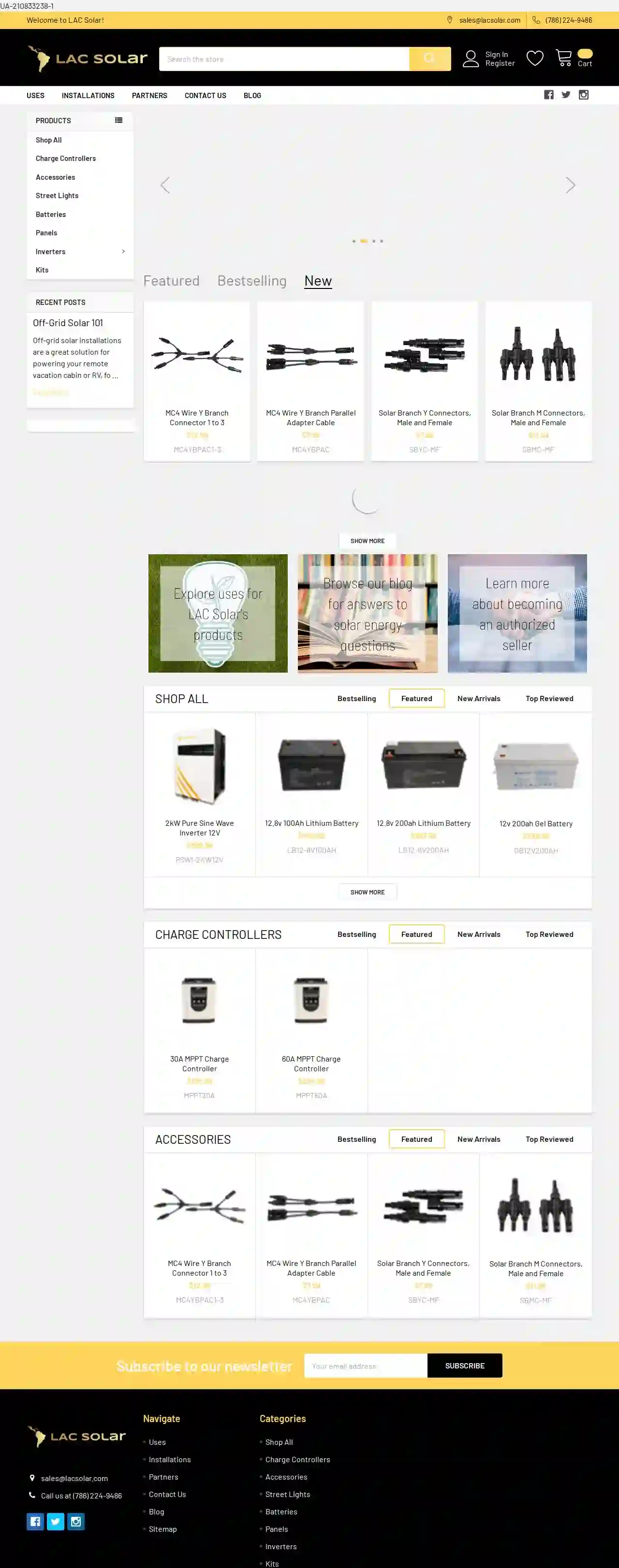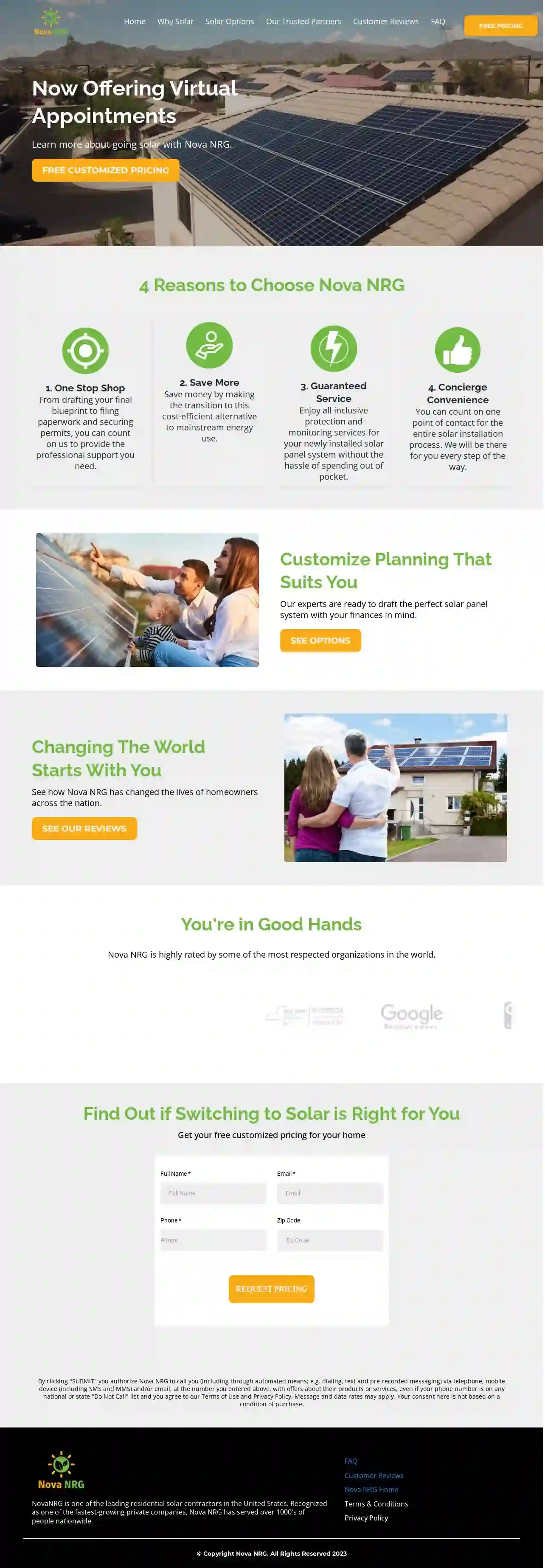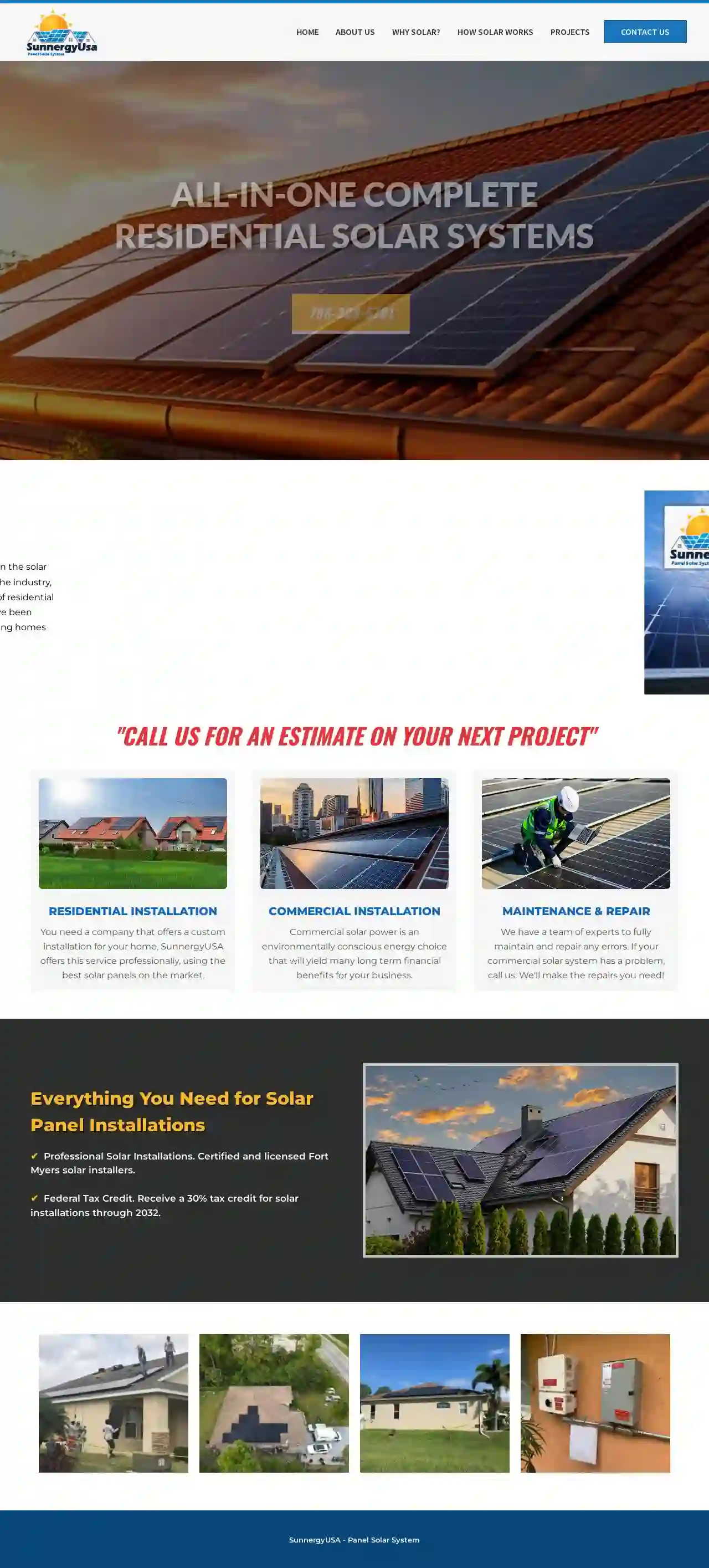Commercial Solar Installers Port St. Lucie
Best Commercial Solar Installer in Port St. Lucie
Get up to 3 Business Solar Installers quotes for your project today! Compare profiles, reviews, accreditations, portfolio, etc... and choose the best service.

ProSolar Florida
4.4105 reviews1100 W Oakland Park Blvd Unit 8, Wilton Manors, FL 33311, United States, 33311, USProSolar Florida is a leading provider of solar energy solutions, offering a range of services including residential and commercial solar energy, net metering, roof installation, solar reinstallation, Tesla Powerwall certified installer, Tesla Solar Roof, and Duracell Powercenter. With a focus on sustainability and energy independence, ProSolar Florida aims to help individuals and businesses transition to cleaner energy sources.
- Services
- Why Us?
- Accreditations
- Our Team
- Testimonials
- Gallery
Get Quote
Goldin Solar
4.6150 reviewsSuite 306, Miami, FL, 2937 SW 27th Ave, 33133, USGoldin Solar is a leading provider of solar systems for Florida homeowners and businesses, offering a range of solutions to save on energy costs and generate backup power. With a focus on sustainability and customer satisfaction, Goldin Solar provides comprehensive services including system installation, maintenance, and financing options.
- Services
- Why Us?
- Accreditations
- Our Team
- Testimonials
- Gallery
Get Quote
ProSolar Systems Florida
55 reviewsWilton Manors, FL, United States, 1100 W Oakland Park Blvd Unit 8, 33311, USProSolar Florida is a leading provider of solar energy solutions, offering a range of services including residential and commercial solar energy, net metering, roof installation, solar reinstallation, Tesla Powerwall certified installer, Tesla Solar Roof, and Duracell Powercenter. With a focus on sustainability and energy independence, ProSolar Florida aims to help individuals and businesses transition to cleaner energy sources.
- Services
- Why Us?
- Accreditations
- Our Team
- Testimonials
- Gallery
Get Quote
WattSun Solar and Roofing
4.9104 reviews2578 Clark St., Suite 5A, 2578 Clark St. Suite 5A, Apopka, 32703, USWattSun Solar and Roofing is a local, family-owned business dedicated to providing personalized and customer-centric solar and roofing solutions. With a vested interest in maintaining a strong reputation, we prioritize attentive service, tailored solutions, and ongoing support. Our team of experts is committed to exceeding expectations and building lasting relationships with our clients.
- Services
- Why Us?
- Accreditations
- Our Team
- Testimonials
- Gallery
Get Quote
SOLAR GLASS WINDOW TINTING & SECURITY SAFETY FILM
4.113 reviews407 Lincoln Rd., Suite 6H, Miami Beach, 33139, USAAA Solar Glass Window Tinting & Security Safety Film is a family-owned and operated business that has been providing first class service and products since 1983. Based in Miami Beach and Fort Lauderdale, Florida, they service Broward County, Palm Beach County, and Miami-Dade County. They specialize in Residential, Commercial, and Marine window tinting, offering a wide variety of Decorative Window Film and security safety film. Their products include Ceramic Film, Safety/Security Films, RF Blocking, and more. They are licensed and insured contractors with 36 years of experience, offering a lifetime warranty on all their films.
- Services
- Why Us?
- Accreditations
- Our Team
- Testimonials
- Gallery
Get Quote
LAC Solar
Miami, FL, USA, 123 Solar Street, 33101, USLAC Solar is a leading provider of solar energy solutions, offering a wide range of products including charge controllers, accessories, street lights, batteries, panels, inverters, and kits. Their mission is to provide high-quality, reliable, and affordable solar energy solutions to meet the needs of their customers. With a focus on innovation and customer satisfaction, LAC Solar aims to make solar energy accessible and beneficial for everyone.
- Services
- Why Us?
- Accreditations
- Our Team
- Testimonials
- Gallery
Get Quote
Nova NRG
4.9121 reviewsBeverly Hills, CA, 123 Solar Way, 90210, USNova NRG is a leading residential solar contractor in the United States, recognized as one of the fastest-growing private companies. They have served over 1000's of people nationwide. Nova NRG offers a one-stop shop for solar installation, including drafting final blueprints, filing paperwork, and securing permits. They provide cost-efficient solar options, guaranteed service, and concierge convenience with a single point of contact throughout the installation process.
- Services
- Why Us?
- Accreditations
- Our Team
- Testimonials
- Gallery
Get Quote
SunnergyUSA
54 reviewsFort Myers, FL, 1234 Main St, 33901, USSunnergyUSA is a pioneer in the installation of residential and commercial solar panels, with over 18 years of experience in the industry. They offer comprehensive energy solutions tailored to each client's specific needs, using cutting-edge technology and the highest quality standards to ensure optimal and long-lasting performance. SunnergyUSA is dedicated to fostering a community of individuals passionate about making the world a better place through clean, renewable energy.
- Services
- Why Us?
- Gallery
Get Quote
Solis Energy
52 reviewsCasselberry, Florida, 150 N Cypress Way, 32707, USSolis Energy is Power When You Need It. More than just solar! Our reliable outdoor backup power solutions are designed to go above and beyond.
- Services
- Why Us?
- Accreditations
- Our Team
- Testimonials
- Gallery
Get Quote
Sundial Solar LLC, Solar Installers | Solar Company
4.723 reviews123 Solar Lane, Suite 100, Daytona Beach, 32118, USSundial Solar Services is a family owned and operated business based in Volusia County, FL. They are a state certified solar contracting company with a focus on providing solar solutions for families and businesses. Their services include solar panels, solar pool heating, solar water heating, solar AC, sun tunnels, solar lights, solar battery backups, and solar repairs and maintenance. They serve various areas including Daytona Beach, Port Orange, Ormond Beach, New Smyrna Beach, Deland, and Palm Coast.
- Services
- Why Us?
- Accreditations
- Our Team
- Testimonials
- Gallery
Get Quote
Over 4,210+ Solar Installers in our network
Our solar companies operate in Port St. Lucie and surroundings!
SolarCompaniesHub has curated and vetted the Best Solar Contractors near Port St. Lucie. Find a top & reliable pro today.
Frequently Asked Questions About Commercial Solar Installations
- High Energy Consumption: Businesses with significant electricity usage, such as manufacturing facilities, data centers, and large retail stores, can benefit greatly from the cost savings of solar.
- Large Roof Space: Businesses with ample roof space have the potential for larger solar installations, maximizing energy generation and financial returns.
- Available Land: Businesses with unused land can consider ground-mounted solar farms for larger-scale energy production.
- Long-Term Occupancy: Businesses planning to occupy their building for an extended period can maximize the long-term benefits and ROI of a solar investment.
- Sustainability Goals: Businesses committed to reducing their environmental impact can leverage solar to achieve their sustainability objectives.
- You pay a fixed monthly lease payment for the use of the solar system.
- You do not own the system.
- You are responsible for maintenance and repairs.
- You typically do not benefit from tax incentives or depreciation.
- You purchase the electricity generated by the solar system at a fixed rate per kilowatt-hour (kWh).
- You do not own the system.
- The third-party owner is responsible for maintenance and repairs.
- You may not be eligible for all tax benefits.
- Uses high-quality mounting hardware
- Follows industry best practices
- Has a good understanding of roofing systems
What types of businesses are best suited for commercial solar?
How do solar panels affect my building's insurance?
What is the difference between a solar lease and a PPA?
Solar Lease:
PPA:
Will solar panels affect my roof warranty?
What types of businesses are best suited for commercial solar?
- High Energy Consumption: Businesses with significant electricity usage, such as manufacturing facilities, data centers, and large retail stores, can benefit greatly from the cost savings of solar.
- Large Roof Space: Businesses with ample roof space have the potential for larger solar installations, maximizing energy generation and financial returns.
- Available Land: Businesses with unused land can consider ground-mounted solar farms for larger-scale energy production.
- Long-Term Occupancy: Businesses planning to occupy their building for an extended period can maximize the long-term benefits and ROI of a solar investment.
- Sustainability Goals: Businesses committed to reducing their environmental impact can leverage solar to achieve their sustainability objectives.
How do solar panels affect my building's insurance?
What is the difference between a solar lease and a PPA?
Solar Lease:
- You pay a fixed monthly lease payment for the use of the solar system.
- You do not own the system.
- You are responsible for maintenance and repairs.
- You typically do not benefit from tax incentives or depreciation.
PPA:
- You purchase the electricity generated by the solar system at a fixed rate per kilowatt-hour (kWh).
- You do not own the system.
- The third-party owner is responsible for maintenance and repairs.
- You may not be eligible for all tax benefits.
Will solar panels affect my roof warranty?
- Uses high-quality mounting hardware
- Follows industry best practices
- Has a good understanding of roofing systems